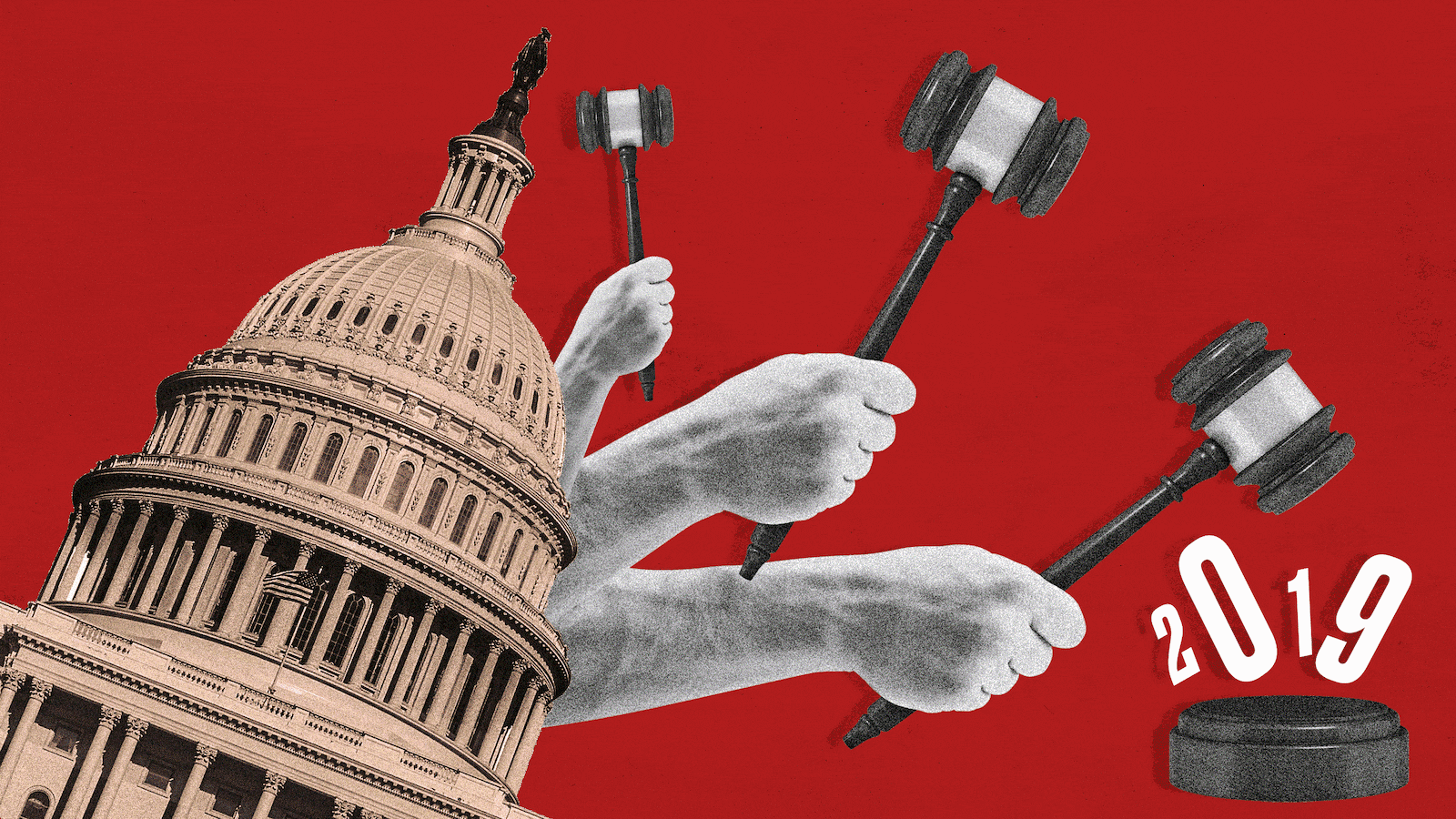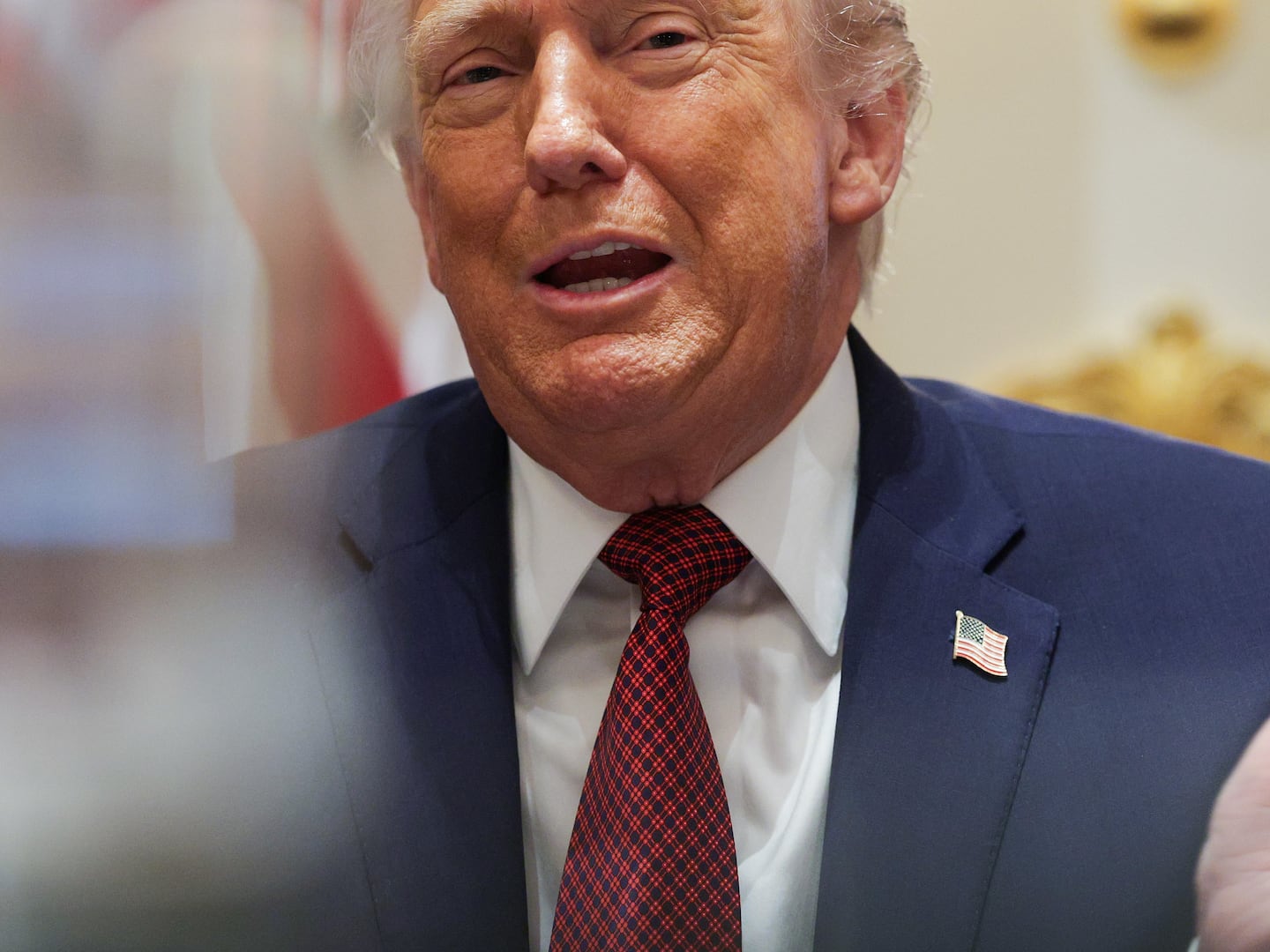It may be hard to believe, given the Trump administration's history on the matter and the threats that still loom large in more conservative states, but 2019 could be a landmark year for LGBT rights.
Thanks in part to the results of the 2018 midterm elections, some of the most populous states in the country could add protections in the near future, LGBT advocates say.
“We actually have some good prospects for positive legislation to pass this year,” Cathryn Oakley, state legislative director for the Human Rights Campaign, told The Daily Beast.
Although comprehensive federal-level LGBT protections under the proposed Equality Act will almost certainly remain out of reach under the Trump administration, 2019’s state-level victories could further pressure Congress to act.
“Making progress in state legislatures is one of the most important ways to set the stage for a comprehensive federal non-discrimination law that protects LGBTQ people in employment, housing, and public spaces,” Masen Davis, CEO of the LGBT advocacy group Freedom for All Americans, said in a statement, adding that the group hopes to bring its “battle-tested playbook to states like Virginia, New York, and Florida this year.”
In New York this year, LGBT advocates are hoping to finally pass transgender-inclusive non-discrimination protections. Governor Andrew Cuomo signed an executive order in 2015 that protects transgender people from discrimination in public accommodations, housing, and employment—but legislation would be more permanent.
The Gender Expression Non-Discrimination Act, or GENDA, has been proposed annually for over a decade but has never made it through the New York State Senate despite passing the General Assembly eight times.
Last year, for example, GENDA failed to clear a Senate committee by a 5-4 vote after clearing the Assembly by a 100-43 margin, as the Washington Blade reported.
But in the 2018 midterm elections, Democrats regained control of the New York State Senate for the first time since 1965–and that shift could provide the necessary votes to get GENDA to the floor for a vote.
GENDA would be a major boost for the 78,600 transgender adults who live in the state of New York, according to a Williams Institute estimate. (In fact, roughly one out of every 18 transgender people in the United States currently lives in New York.)
Virginia’s LGBT housing non-discrimination bill has faced a similar roadblock as New York’s GENDA: Although the State Senate has approved it, the House has blocked it.
SB 423 would add sexual orientation and gender identity to the Virginia Fair Housing Law—and it passed the GOP-controlled State Senate last year in a 29-10 vote. But as the Washington Blade noted, a Virginia House of Delegates subcommittee killed SB 423 last year—along with other LGBT rights bills. The situation could change this year—thanks to recent developments in the composition of the House.
“Obviously their legislative makeup is much more balanced and amenable to that kind of legislation than it used to be, so that’s great news,” Oakley told The Daily Beast.
Republicans in Virginia have controlled both the State Senate and the House of Delegates since 2015–but Democrats have been making inroads in recent years. At present, the GOP has only a two-seat lead in the House of Delegates—and that could change later in 2019, when House seats are once again up for grabs.
Based on voting patterns for Senator Tim Kaine in the 2018 midterms, the Washington Post estimated that Democrats could take commanding leads in both the State Senate and the House of Delegates later this year. That makes the passage of bills like SB 423 more likely.
“Those are two big, exciting possibilities,” said Oakley of the New York and Virginia bills, “and I think there’s reason to feel optimistic about both of those efforts.”
Freedom for All Americans is also hoping that Ohio and Florida will move closer to passing their own LGBT non-discrimination laws this year. Neither state currently provides protections on the basis of either sexual orientation or gender identity. If successful, FFA estimates that over one million LGBT Americans will be protected.
However, any progress made in the Ohio and Florida state legislatures could stop at their respective governor’s desks: incoming Florida governor Ron DeSantis said he would veto transgender restroom protections, as the Palm Beach Post noted during the campaign, and Ohio Governor John Kasich’s successor Mike DeWine opposes LGBT non-discrimination law, as the Akron Beacon Journal reported.
Kasich, however, already signed an executive order last month adding sexual orientation and gender identity as protected categories for Ohio state workers. Outgoing Michigan governor Rick Snyder, also a Republican, quickly followed suit with a directive barring state contractors from discriminating against LGBT employees.
Advocates expect to see more of these directives soon—especially as the business community pushes for LGBT protections.
“I anticipate we’ll see some other purple and potentially red states issue executive orders as well at the gubernatorial level,” Davis told The Daily Beast.
In fact, Snyder’s successor, Democrat Gretchen Whitmer, signed her own LGBT directive this Monday.
Non-binary Americans could also see more jurisdictions offer expanded gender options on driver’s licenses and birth certificates in 2019. California and New York, for example, both started offering non-binary gender options at the start of this year.
As The Daily Beast previously reported, advocates with the Intersex and Genderqueer Recognition Project are hoping that East Coast states like Massachusetts, Rhode Island, and Maryland will soon offer “X” options on identity documents.
And conversion therapy bans—five of which passed in 2018–could increase in number in 2019, even in more conservative states like Utah.
More realistically, as the Associated Press recently reported, LGBT advocates believe that Colorado, Maine, Massachusetts, and New York could pass their own conversion therapy bans in the coming legislative cycle, bringing the total number of states that have prohibited the practice to 18.
Collectively, LGBT advocates are expecting a key year in the push for legal protections—even as they fend off federal-level attacks like the transgender troop ban.
“I think this is going to be a year of continuing to build momentum, from the municipal level to the federal level,” said Davis, “and hopefully [a year of] getting a few more states to put a stake in the ground that they support all members of their state, including those who are LGBT or Q.”







